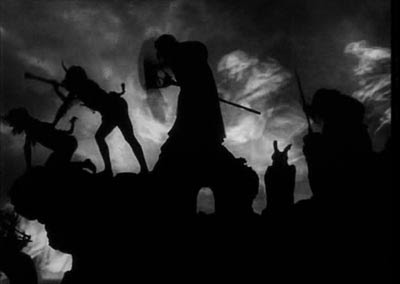










Angels Are So Few (1970) by Dennis Potter
This is the first of Potter's visitation plays (see also Schmoedipus, Brimstone & Treacle), featuring Michael, an 'angel' who visits Cynthia, a bored and frustrated housewife. The question of whether Michael really is an angel is not clear - his 'curse', "I feel very sorry for you" seems to result in two deaths; the sneering postman and the elderly Mr Cawser, plus he also seems to be able to transport himself to the scene of the postman's accident while sat at Cynthia's kitchen table. On the evening after her first visit, Cynthia watches a TV 'Epilogue' delivered by a priest who reminds the viewer that angels were messengers from god who sometimes were the deliverers of death.
It's only at the end of the play, after he has been seduced by Cynthia, that the truth is revealed, although not in an altogether satisfactory manner. Potter has been here before. His Jesus in 'Son of Man' could quite as easily be a mortal man who is under the delusion that he is the Messiah - something which at the time aroused the irie of Mary Whitehouse et al.











































